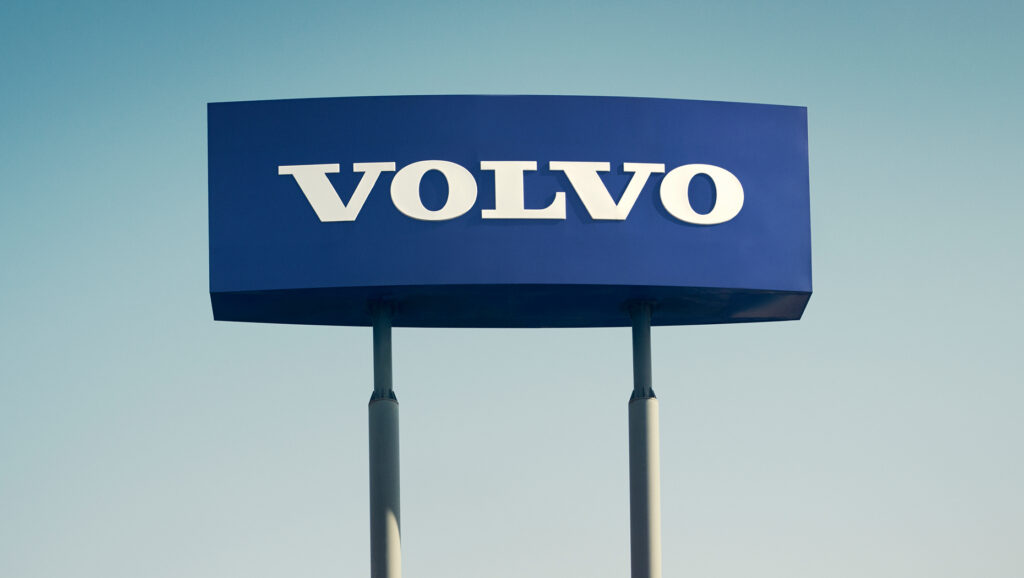Volvo Buses changes business model in Europe and has decided to close its bodybuilding factory in Wroclaw in 2024
This means that Volvo Buses will focus its production on chassis and together with external bodybuilders offer customers in Europe a complete range of city and intercity buses as well as coaches for the premium segment
Volvo Buses is changing its business model in Europe and will apply the same successful model as it has on several other markets. This means that Volvo Buses will focus its production on chassis and together with external bodybuilders offer customers in Europe a complete range of city and intercity buses as well as coaches for the premium segment. Consequently, Volvo Buses has decided to close its bodybuilding factory in Wroclaw, Poland, during the first quarter of 2024. Volvo Buses has signed a Letter of Intent regarding the divestment of its premises to Vargas Holding. A restructuring provision of SEK 1.3 billion will negatively impact operating income in the first quarter of 2023.
“Our business in Europe has been loss-making for years. With this business model, that we already today apply successfully in many markets, we will improve profitability and secure our long-term competitiveness,” says Anna Westerberg, President of Volvo Buses.
Moving forward, Volvo Buses will continue to have the customer interface, offer customers in Europe a complete range of buses and coaches in partnership with selected external bodybuilders, while securing a strong uptime service and a high standard of safety and quality. This will give Volvo Buses a leaner structure, improved flexibility, and the ability to better meet market requirements and customer demands.
The bodybuilding manufacturing in Wroclaw is planned to continue until the first quarter of 2024. Orders placed for complete buses and coaches in Europe will be delivered from the Wroclaw plant according to plan. Volvo Buses will continue to give full service and support to the existing fleet as well as to the new offering.
New opportunities for Volvo Buses employees
After discussions between Volvo Buses and Vargas Holding, a Letter of Intent (LoI) has been signed according to which Volvo Buses’ premises in Wroclaw will be divested to Vargas Holding. Vargas Holding will re-purpose and gradually grow the production facility. The production will start in 2024 and expand in the years to follow. The Lol includes Vargas Holding’s aim to offer employment to parts of the Volvo employees, some as early as the third quarter of 2023.
“Although Vargas Holding will operate in a different industry to ours, a key factor for them is the possibility to employ the experienced staff working in our organization in Wroclaw needed for their establishment and future expansion,” says Anna Westerberg.
The decision to end the production of complete buses and coaches will impact approximately 1,600 positions at Volvo Buses, whereof around 1,500 are based in Wroclaw. Information and dialogue with respective unions have been initiated.
“Volvo Buses will do the utmost to support our loyal employees, many of whom have been employed for numerous years. We will work together with Vargas Holding, local authorities and other parties to support people in finding new employment opportunities,” says Anna Westerberg.
Volvo Group will continue to have a strong foothold in Poland also after the factory closure with more than 2,100 employees working at Volvo Trucks, Volvo Construction Equipment and Group support functions such as digital and IT, real estate, people services and accounting services.
Volvo Buses’ factories in Sweden and Brazil producing chassis and the manufacturing of complete buses and coaches in Mexico and North America are not affected by the decision and will continue with production as normal.
Volvo Buses’ factories in Sweden and Brazil producing chassis and the manufacturing of complete buses and coaches in Mexico and North America are not affected by the decision and will continue with production as normal.
Implementation of the new business model is expected to negatively impact revenues in Europe temporarily during the transition period in 2024 and 2025. A restructuring provision of approximately SEK 1.3 billion will negatively impact operating income in the first quarter of 2023. The expected negative cash flow effect is estimated to approximately SEK 1.0 billion, of which the majority will impact 2024. Once completed, the move to the new business model is expected to make the European bus operation profitable.
Category: Cab, Trailer & Body, Featured, General Update, News, Products, Transit News, Vehicles











